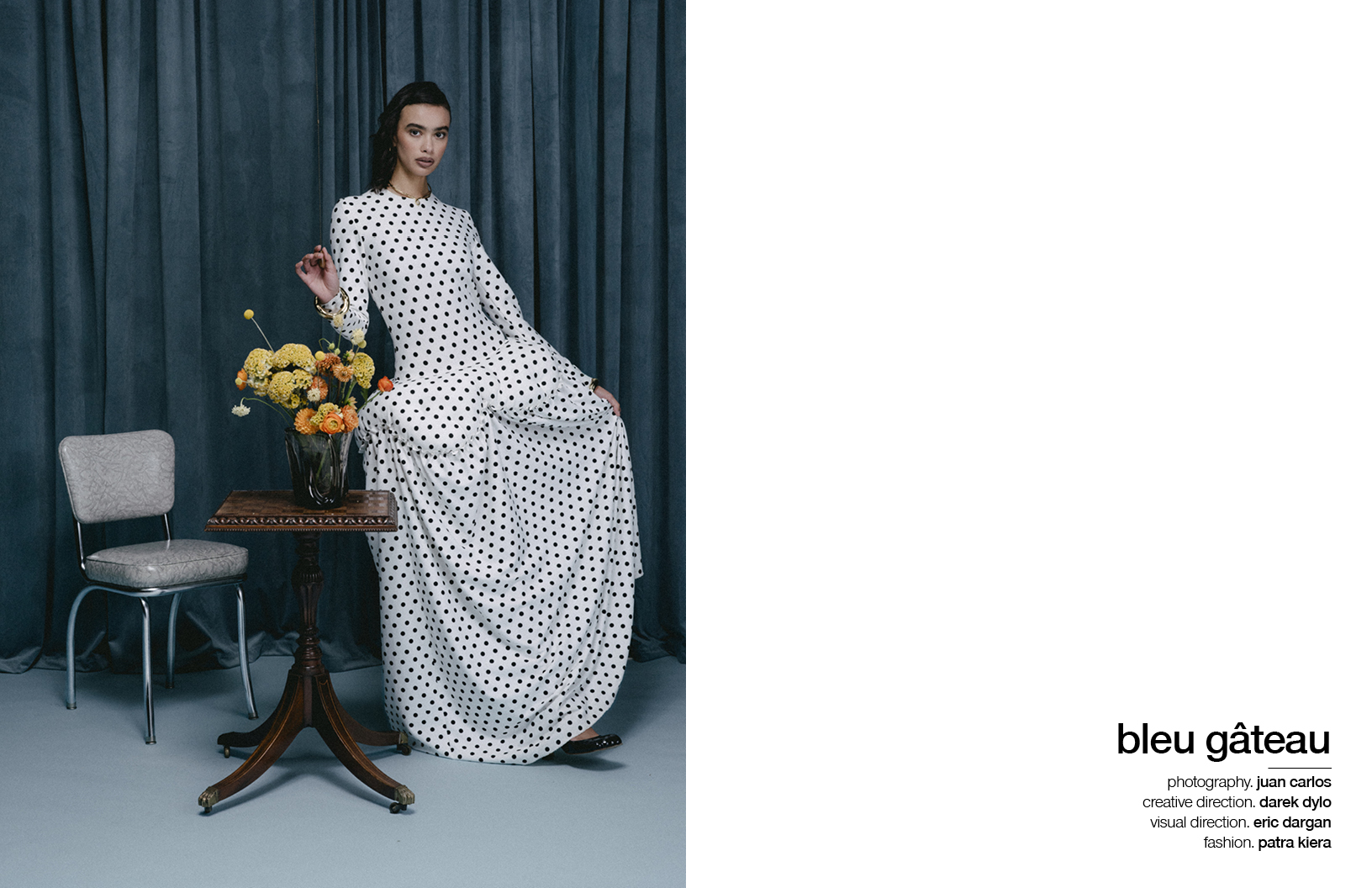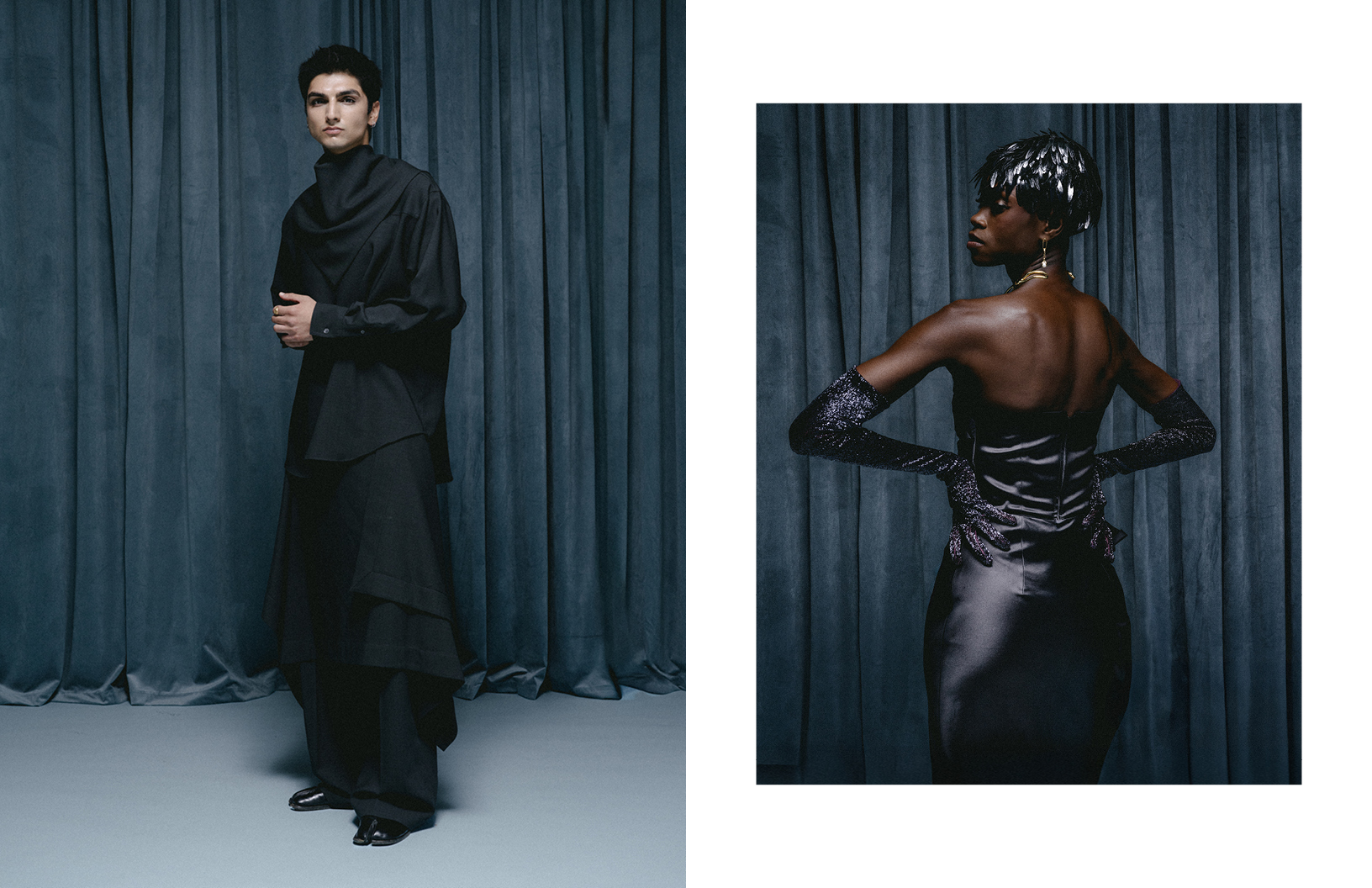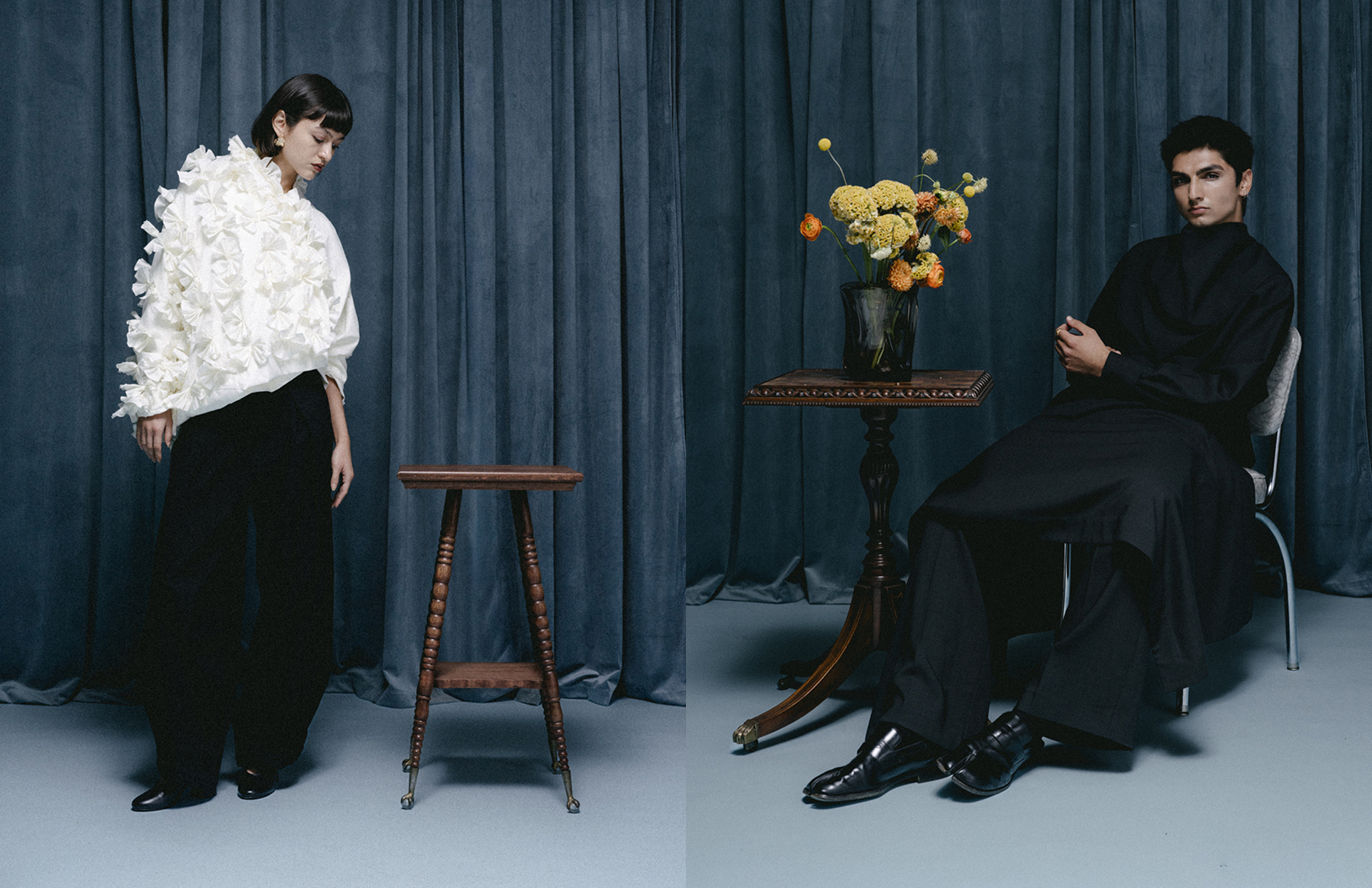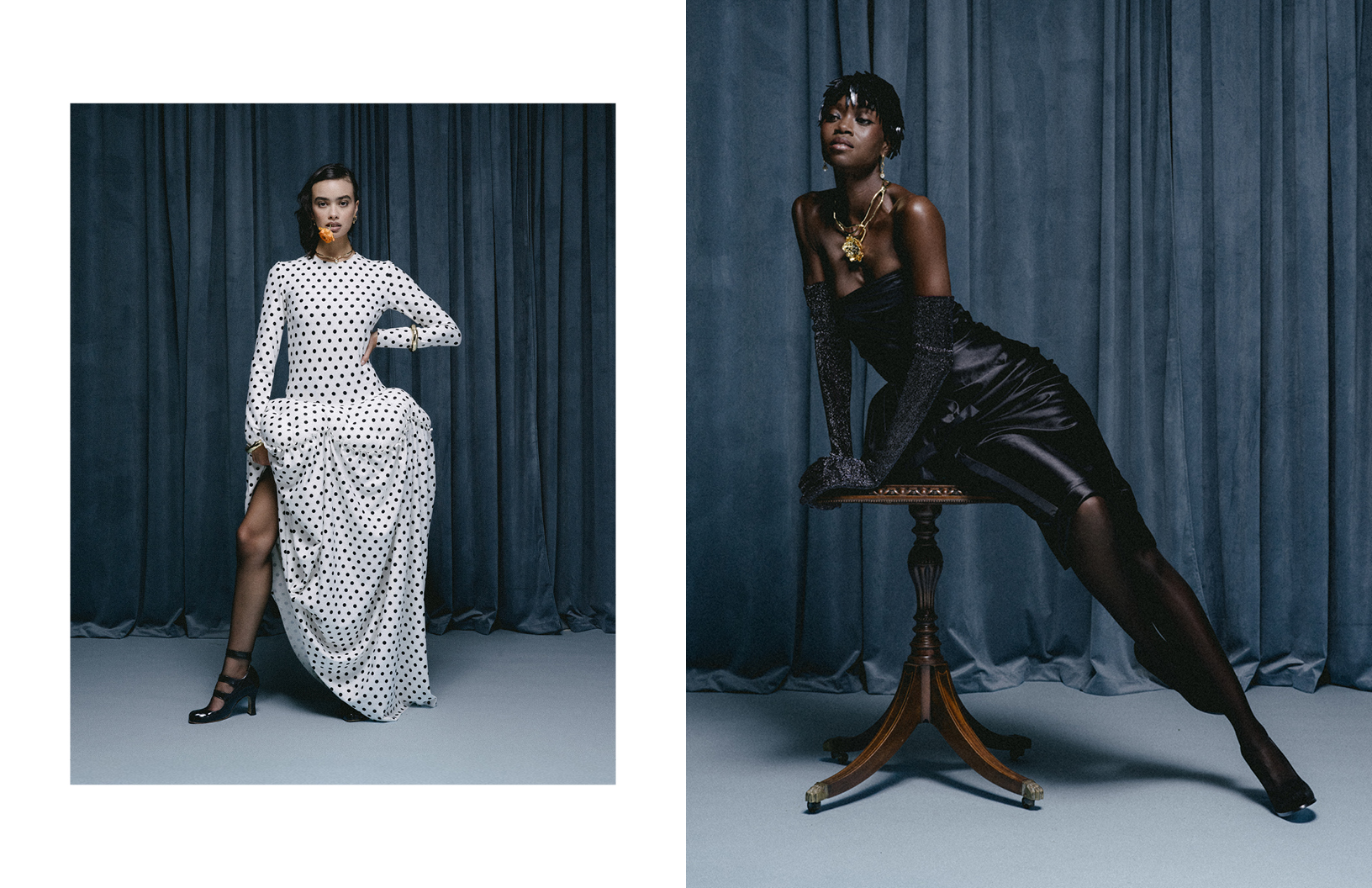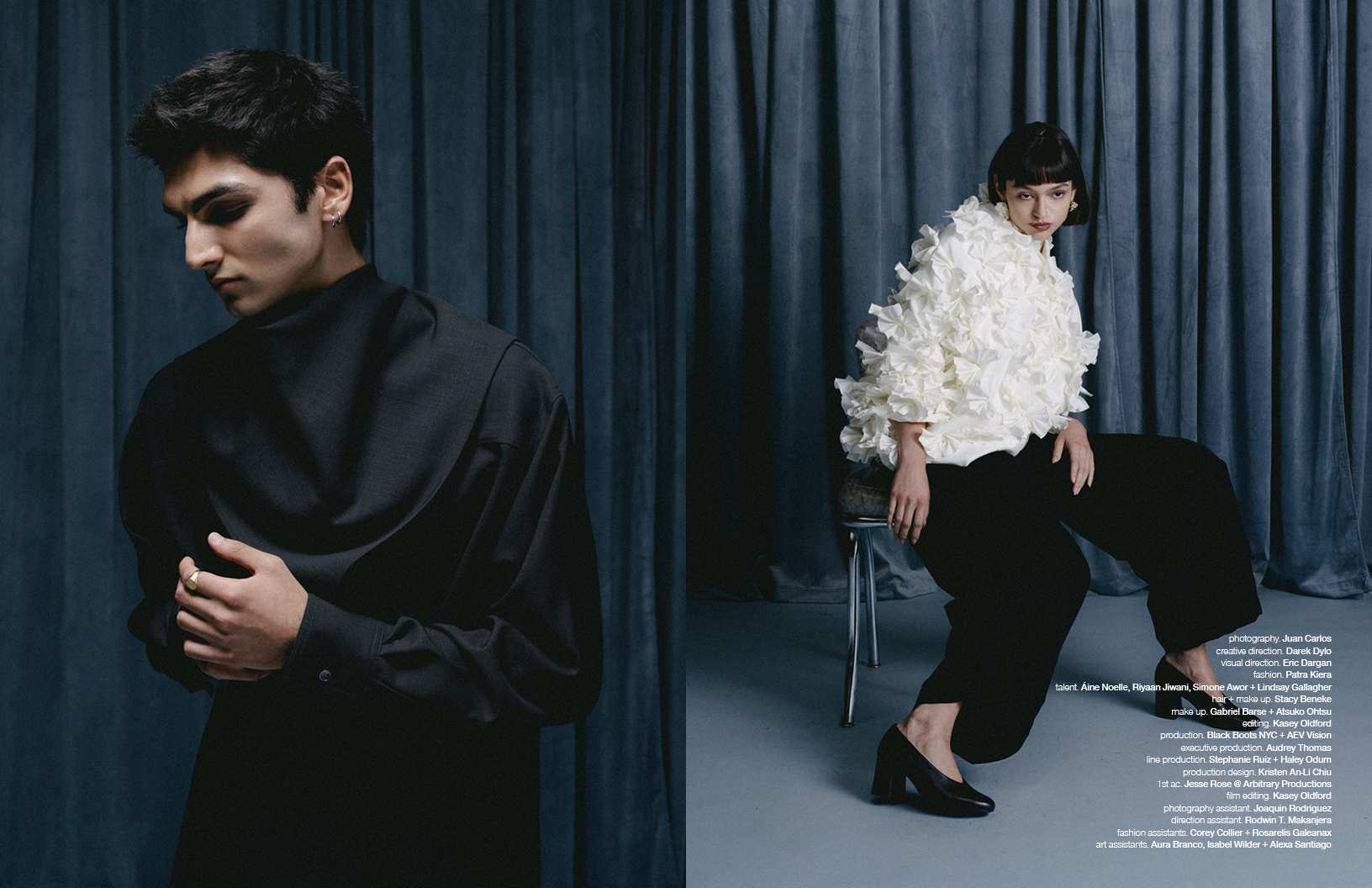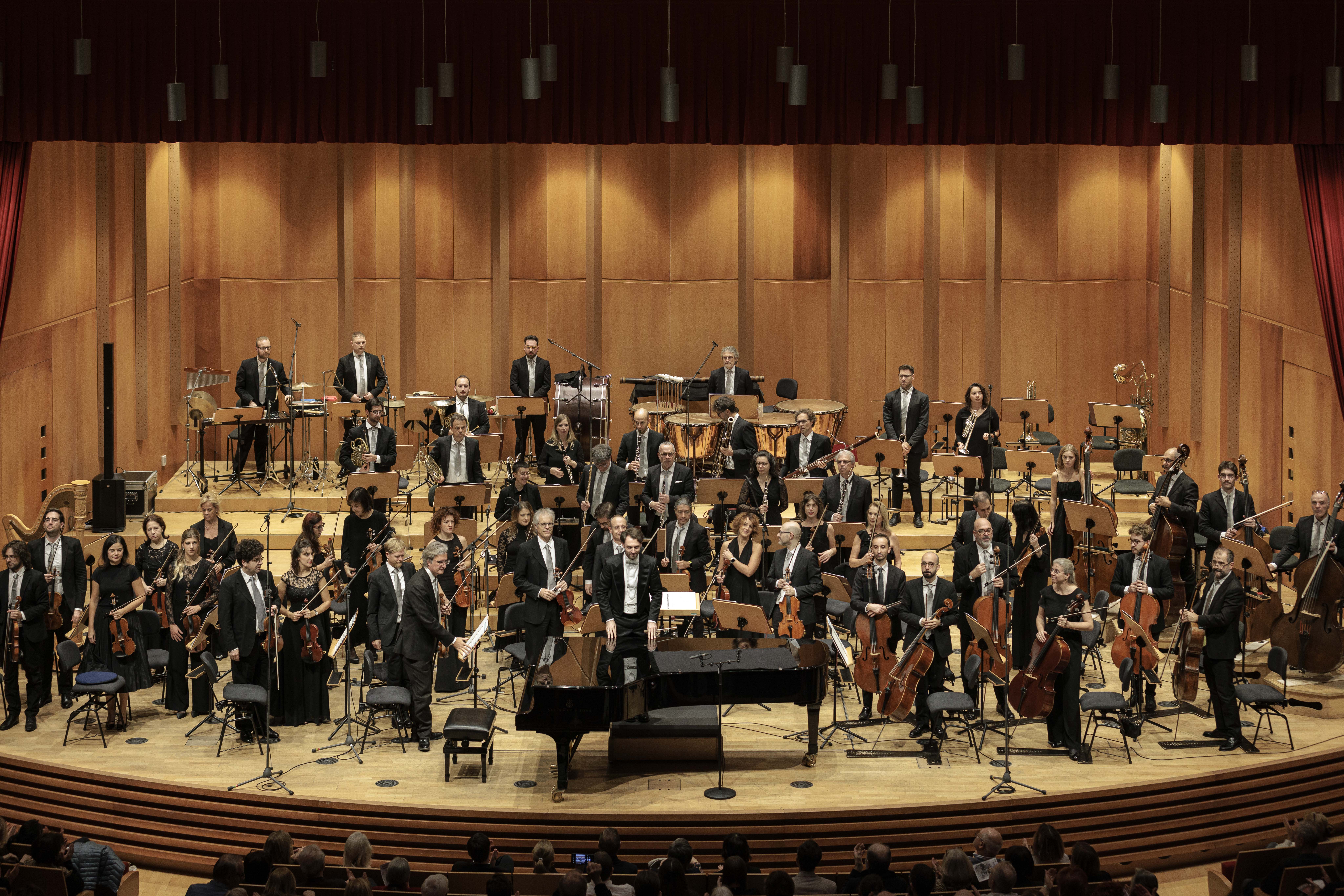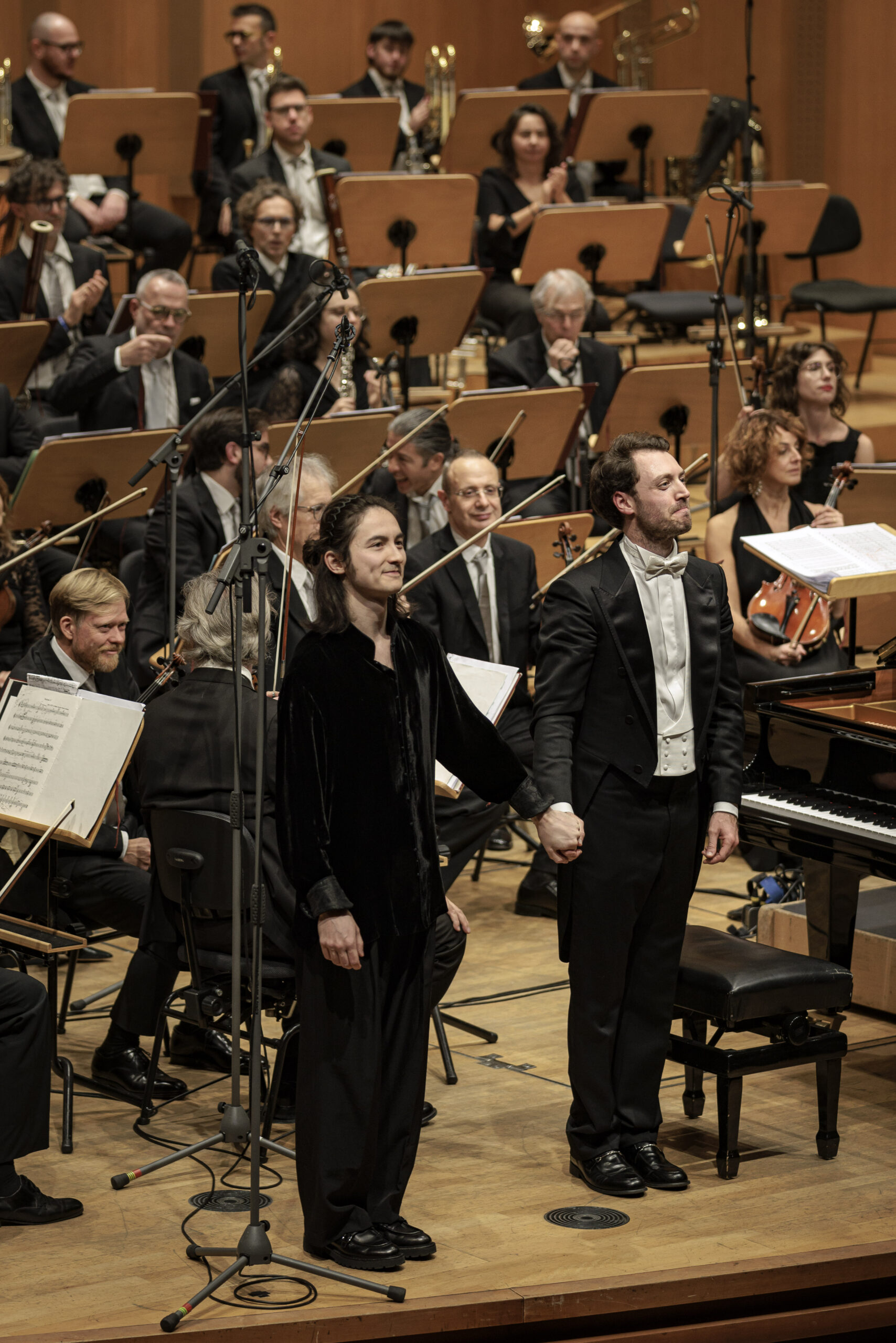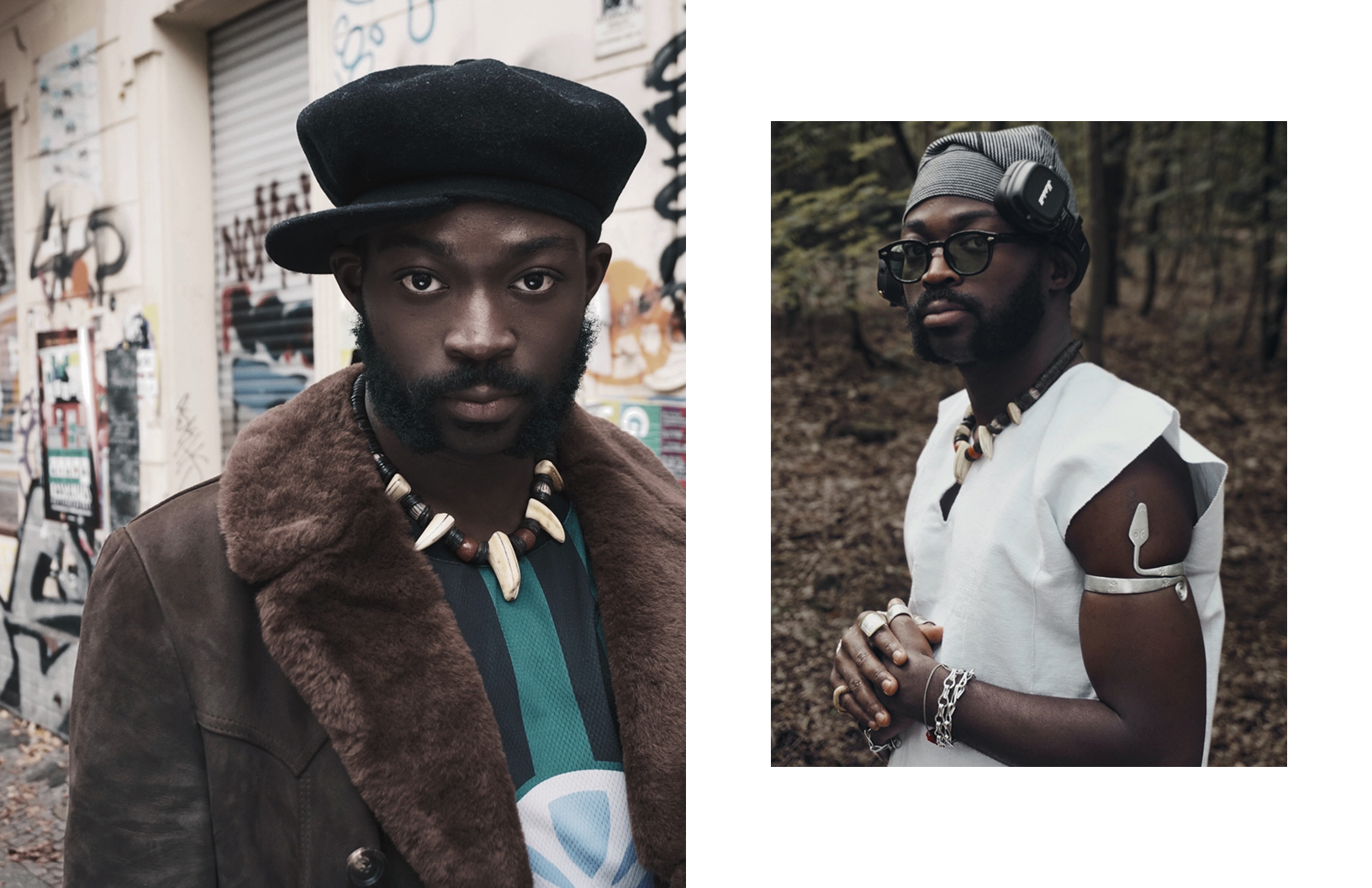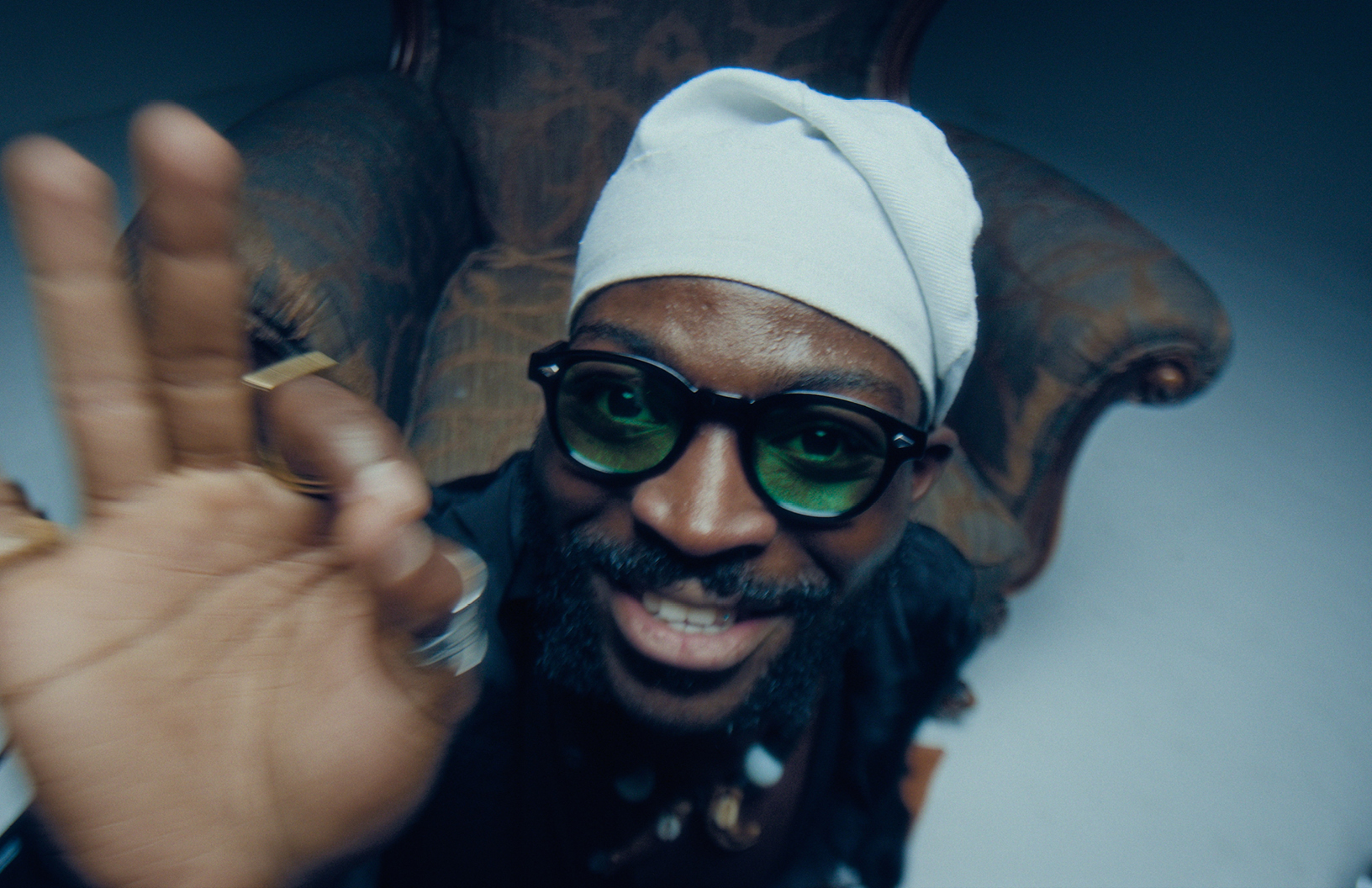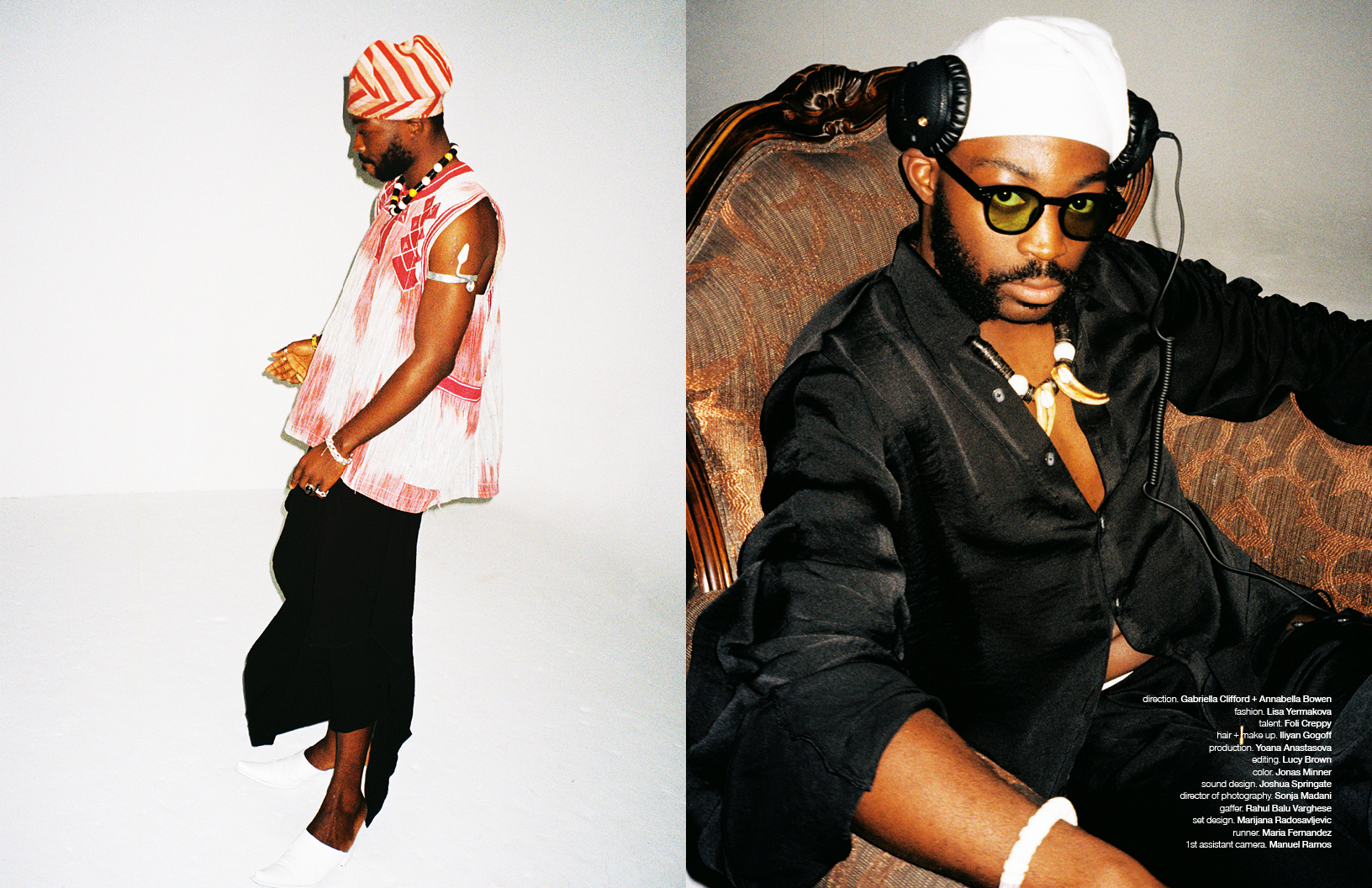Barbershop, a poem centred around the existence of a masculine being and their relationship with the mental health resources around them, written and spoken by Tanaka Fuego, a slam winning spoken word performer. As a Black, queer artist, Fuego’s work delves heavily on identity themes to deliver a soft-spoken punch.
“The visual narrative we created attempts to echo the struggle faced by Tanaka over the years and his efforts to overcome it through a series of symbolic and abstract scenes,” the director explained in a statement. “A theme of water is reflected throughout the video as it represents the process of therapy, taking you away from feelings of drowning and suffocation and towards a flowing tranquility. Art, faith, and nature are three main archetypes of healing that are used as a visual accompaniment to Tanaka’s journey of discovery and understanding.”
Alongside the video premiere, Fuego and Yassin also shared a one to one exclusively for Schön! discussing their creative journeys, which you can read below.

Yassin: How did you get into poetry? And who is Tanaka?
Tanaka: Tanaka is an overly emotional individual who has too much pride to be that emotional in real life, so poetry is the escape. That’s the best way to say it.
Yassin: How does your personality and identity match with your craft or poetry? And how did you start with poetry, what led you to go down this avenue?
Tanaka: My door-in was all by accident. I was 17 and I was living in America at the time, and I was in the beginning of my social transition. I was battling being who I am in high school and at work, and being who I am and everyone accepting me for the man that I am, the masculine entity that I am, and then coming home and it being a completely different story. I would have to hide my boxers, and change some clothes to look a bit more “decent” and not get such a violent reaction from one of my parents.
One day I just got to a place of despair, and I looked up on YouTube, “poetry.” I fell in love with Rudy Francisco, Danez Smith, and Porsha O, who are amazing poets. I thought I was good enough, wrote my own poem, and I thought it was hard, and I googled to see if I could find some workshops in Indianapolis that I could go to and get better, and I accidentally signed up for an international poetry slam. And then I accidentally made it onto the state team. I represented my state in an international poetry slam in San Francisco. When I came back to England, I felt like I had nothing going for me, and realized that poetry was the only place I could feel safe and like I could be myself, so I started going to open mics. And that was how Tamaka came to be.
Yassin: Were you born in the states? And what state were you representing?
Tanaka: I was born in East London. Hackney all day, all right? But I was repping Indiana in the Midwest, four-hour drive from Tennessee, three-hour drive from Chicago. That was pretty cool. How about you?
Yassin: I was born in Iraq, in the early ‘90s. Due to some circumstances, family and political, my mom wanted to join her brothers and sisters here in the UK, and so we started our journey to the UK. Obviously, in the ‘90s it was quite difficult to get into the UK, so that journey took us four years. I lived in Syria for two years in the ‘90s. Damascus is the most beautiful place I’ve ever been to. Amazing architecture, city, and people and food. And then we moved to Eastern Europe, in Moldova. And in 2001 we finally reached the UK. So my whole life I’ve been having to balance my two different identities. My Western identity and my Middle Eastern identity. The classic thing where you feel like you never fit anywhere. Even when I go back home to Iraq, it never feels quite the same, through the way that I speak, or the way that I dress, or even the topics I bring up or that interest. There’s a sense of being an outsider.

Tanaka: The people you can talk to or have an actual honest debate with, compared to people that are not here for actual conversation but to belittle and berate you. Like it’s one thing me having a question to a statement that you’ve made, “what about this side of it?” like a genuine question, compared to someone questioning your ideas and your ethos purely to make you feel ridiculed.
Yassin: Sometimes it’s hard for people to actually understand how you think inside. On some level you need to give the benefit of the doubt, otherwise, you’re just gonna be shutting people out and only mixing with your own people and that’s not going to do anyone any good. You’re going to feel great because you’ll be surrounded by people that like you, but what good does that do? What good does that achieve other than creating an illusion?
Tanaka: People make their own little bubbles to make life a bit easier. That’s the reality, right? Yes, I want to be challenged, but I don’t want to fight every day for my life. Life is already hard enough. There are some days where I want to be around people who I know won’t misgender me for a whole day. I don’t have to educate everyone. Fuck them!
Yassin: Everyone has insecurities and triggers, and that’s all good. Everyone has strong days and weak days. You’re only human. So it’s natural that you’d want to mix in with people who make you comfortable about who you are. I just think that if a person deems themselves to be an activist on some level, you’ve got to be an activist outside of your circle. You have to get in touch with other people. It’s like picking the right resistance on a bike. You don’t want to be trying to talk to people that are completely the opposite view and that will only stall you. You want to speak to people that challenge you enough but that you can still maintain a conversation with. You can still be yourself and be comfortable. So it’s about picking the right kind of resistance. I think that’s the true driver of change. You have to put in the work and the resistance if you really want to achieve change and get your message across. Otherwise, you’re just gonna be sitting on your side of the fence and nothings going to happen.
Tanaka: Did you become a filmmaker with the intent to create dialogue?
Yassin: I’m going to be honest with you, I started photography just because it was fun. That was all to it. I liked it from a technical angle. And when I started going back home, I was publishing photos on Facebook, and the response was “wow I’ve never seen pictures like this before.” Because all they saw from Iraq was war. And I thought that was interesting so I kept exploring that. When I started doing filmmaking, that became my thing. I’m trying to show people a different perspective on a subject they think they’re already familiar with. I wanted to do that not just for my own identity and to show people what life in Iraq is like for people who aren’t from there, but also to take that concept and apply it to other subjects. When I first met you at that show, I didn’t really know much about transgender people and gender subjects. That’s something new to me. Being gay is already a big thing to tackle where I’m from, but being transgender is a different dimension. There’s a lot that I need to understand in this world. When I met you and you delivered your barbershop poem, I really liked it! That was even before I knew about your trans identity. I like introducing two different people. That’s why I created the Maverick to bring people together who wouldn’t necessarily come together, and produce work for people who may not normally be interested in that kind of work. It’s about stylizing it in a way that’s more digestible for the audience. The classic thing that your parents would do when they tried to get you to take medicine, putting a sweet with it.
Tanaka: I find that very interesting because you’re someone who’s big in digestibility. And I come from this angle where I’m very direct. When people meet me or see me performing live, I can be very gritty. Sometimes the poetry itself can be very gritty. And then when I’m doing the talking parts in between the poems, it’s laughter and its joy, and people ask why I’m so depressed if I’m making so many jokes. You even asked, who is the real Tamaka?
Yassin: Yeah, it’s a bit of a rollercoaster.
Tanaka: But that’s my life! If you think it’s a rollercoaster, I’m living it. I’m the one who has to do the portrayal of who I am. I find it interesting how we complement each other, being so different. I think I’m more like apple cider vinegar and you’re more like mayo.

Yassin: I think, doing projects with people like yourself, where it’s not really my battle, I’m just complimenting it. This is about you and about your work and I’m just stylising it. I think it’s a good way for me to learn more about my craft and about communication without having to look at myself. It’s hard to look at yourself sometimes. The last project I did, made me really depressed. It wasn’t so much me looking at myself, but looking at my people back in Iraq and all the things they’re going through. It’s very hard. Sometimes you see people thinking in a not so social way, shall we say. But I use projects like this to work on my craft without looking at myself so much, and as I kind of build the confidence again, I’m going to go down my own avenue and use everything I’ve learned to bring my own message that reflects me as an individual, as an Iraqi, as someone of a Muslim background. I think it’s a great partnership that we have. You’ve helped me and I hope I’ve helped you. So, what’s next for you? You’ve been doing poetry for a while, but do you think you’ll explore any other avenues?
Tanaka: I have to be honest, I haven’t been writing a lot of poetry during the quarantine. I don’t write as much as people would assume I should, or as most poets do. I write maybe once a week, two weeks, four weeks. It varies. I’ve been finding my voice. We’re all very multifaceted, complex people, or at least many of us are. I think that part of my complexity is finding a voice in music, within the variation of sounds. Definitely not in a genre that people would assume I’d go into. So it’s quite scary because I’m entering into a territory that people wouldn’t assume I’d want to be in. I have to prove to myself that I’m deserving and good enough to share my story. Not just my trans identity, just my human story. Missing the bus, having a bad first-time sexual experience. Stories that are so universal, but you don’t know how people are going to accept them coming from my body and my being. I’ve also been screenwriting a bit. I feel like I want to be a producer or some shit! I kid you not, this mind of mine is just a vessel of mad ideas. I know there are some stories I have in mind that I don’t really care to tell in mad detail, but I think deserve to be told. There are some stories I have no business telling, so let me share that idea with someone who could tell it and wants to buy it. Then they could do what they want with it. I know later in life that could be my main source of income. Just creating stories for people who have never seen their story told before.

This Schön! online exclusive has been produced by
producer + director. Yassin Yassin
co-directors. Jordan Katz Kaye, Madhava Bence Kalmar + Adama Jolloh
poetry + performance. Tanaka Fuego
creative collective + production. Bee Maverick
actors. Claudiu Voicu, Dennis Marika, Donnie Aikins, Gabriella Clarke, Kayla Clarkel, Kiti Swannel, Jessica Lee, Joanna Wolak, Lidia Fernandezros, Madhava Bence Kalmar, Manny Jay, Marton Schneider, Richie Sumaili, Simba Kudyiwa, Melissa Angela Cofie + Tori Ferenc
special effects. Jordan Katz Kaye
sound studio. Blue Studios
poetry recording. Marc Waterman
DOP + editor. Yassin Yassin
special thanks. Bashair Yassin, Brendan Hallam, Claudiu Voicu, Croydon Council, Dara Vakili, Erdal Goksal, Sam Brake, Mara Catalina, Martin Hallam, Marton Schneider + Richard Round Turner


Schön! Magazine is now available in print at Amazon,
as ebook download + on any mobile device






















































